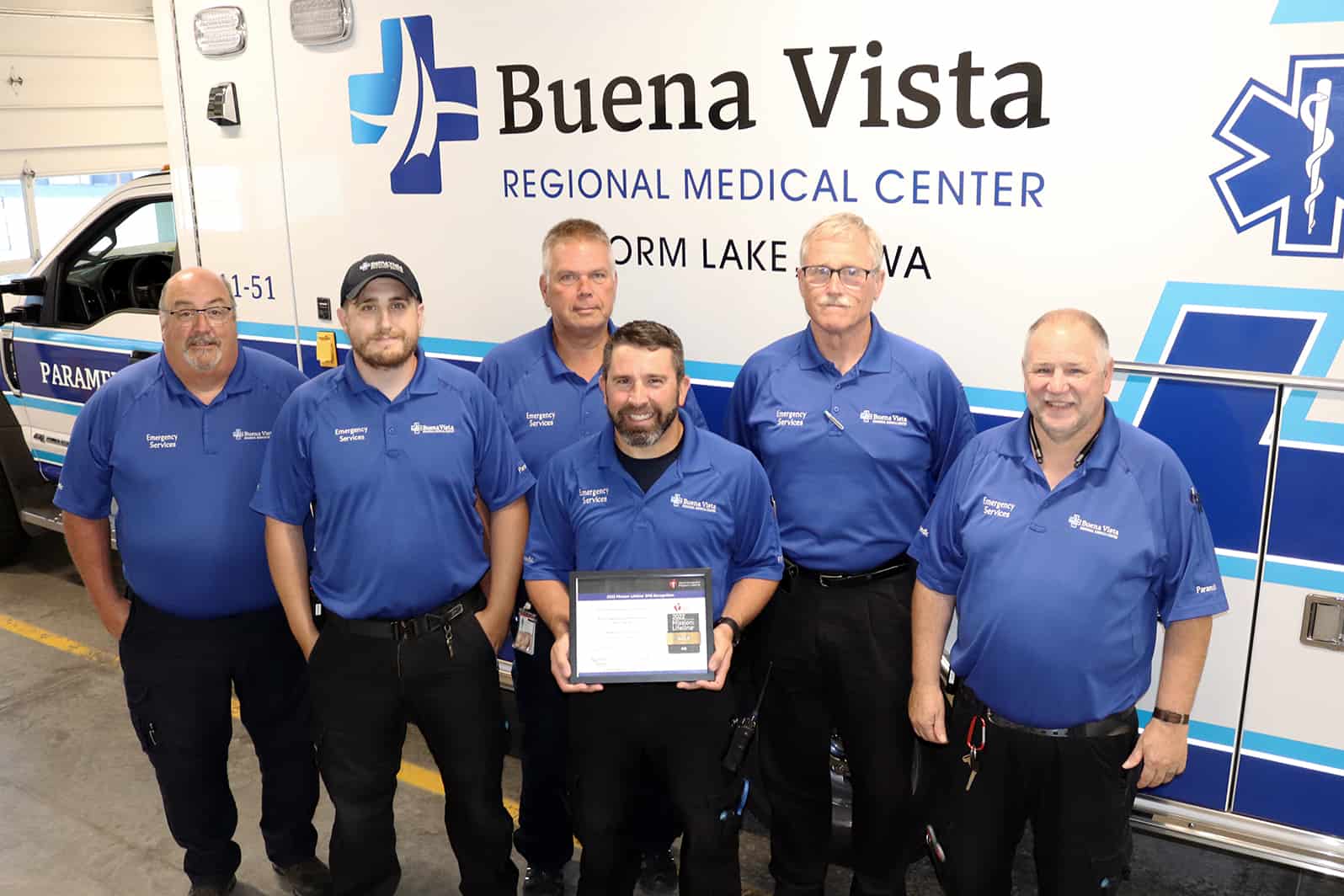 Buena Vista Regional Medical Center received the American Heart Association’s Mission: Lifeline® EMS Gold achievement award for its commitment to offering rapid and research-based care to people experiencing the most severe form of heart attacks, ultimately saving lives.
Buena Vista Regional Medical Center received the American Heart Association’s Mission: Lifeline® EMS Gold achievement award for its commitment to offering rapid and research-based care to people experiencing the most severe form of heart attacks, ultimately saving lives.
The achievement award is earned by demonstrating how organizations are committed to treating patients according to the most up-to-date research-based practices as outlined by the American Heart Association.
“BVRMC is honored to be recognized by the American Heart Association for our dedication to providing optimal care for heart attack patients,” said Robert Shontz, BVRMC Ambulance Manager. “The Mission: Lifeline program puts proven knowledge and guidelines to work on a daily basis so our patients have the best possible chance of survival.”
Each year, more than 250,000 people experience a type of heart attack known as an ST elevation myocardial infarction (STEMI), caused by a blockage of blood flow to the heart. To prevent death, it is critical to restore blood flow as quickly as possible by either mechanically opening the blocked vessel or using clot-busting medication.
Mission: Lifeline is the American Heart Association’s national initiative that helps reduce barriers to prompt treatment for heart attacks – starting from when 911 is called, to EMS transport and continuing through hospital treatment and discharge. Optimal care for heart attack patients takes coordination between the individual hospital, EMS and health care system.
“The health care professionals who interact with a patient even before he or she enters the hospital or emergency room play a vital part in the system of care for those who have heart attacks,” said James G. Jollis, M.D., volunteer chair for the GWTG-CAD Systems of Care Advisory Work Group and professor of medicine at Duke University School of Medicine. “Since they are the first medical point of contact, they can save precious minutes of treatment time by activating the emergency response system that alerts hospitals to an incoming heart attack patient.”
